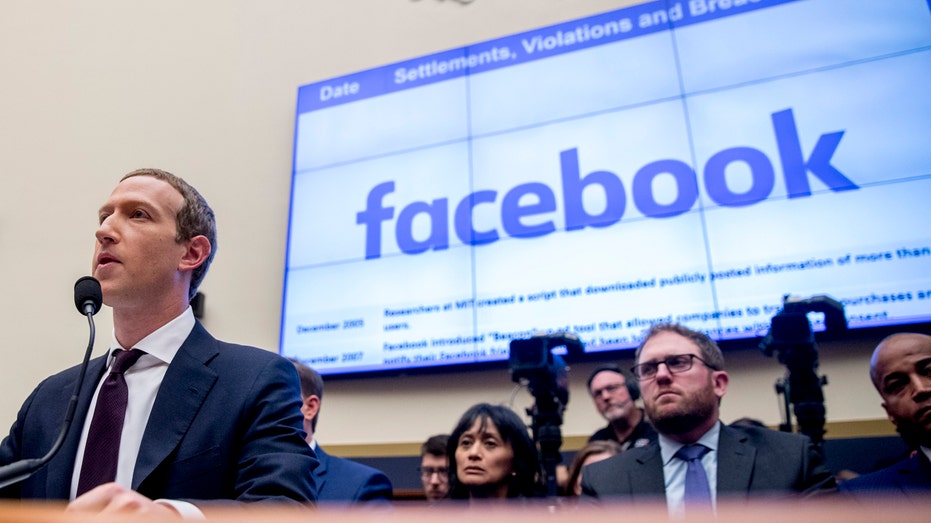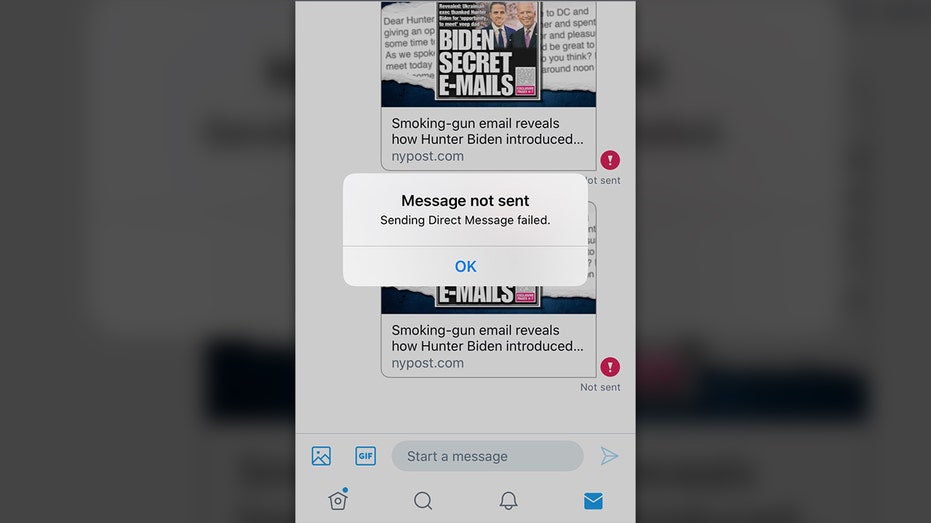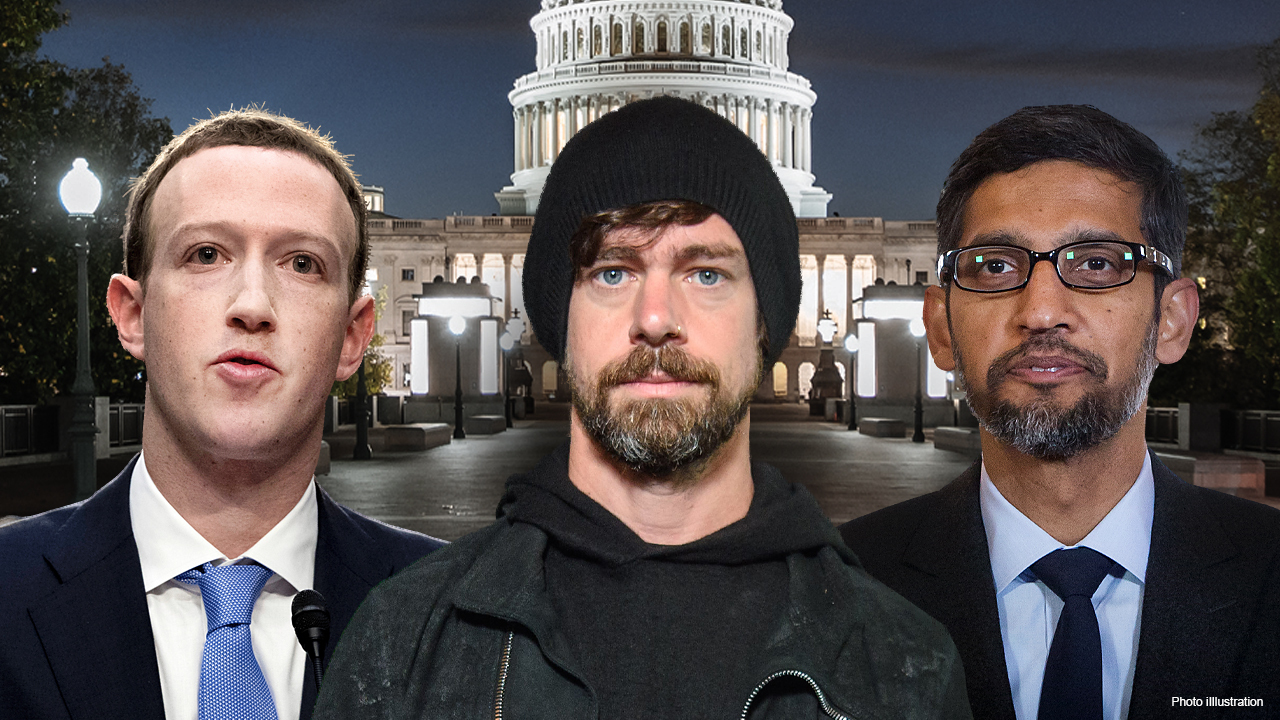Dorsey, Zuckerberg defend Section 230, signal openness to changes during censorship hearing
Section 230 of 1996 Communications Decency Act likely to be a large part of the conversation
Twitter CEO Jack Dorsey and Facebook CEO Mark Zuckerberg on Wednesday defended Section 230 of the 1996 Communications Decency Act during a hearing on censorship before the Senate Commerce Committee.
The two executives, along with Google CEO Sundar Pichai are answering questions Wednesday which have at times touched on Section 230, which gives liability protections to online platforms that allow third-party users to publish content – like Facebook posts, tweets and restaurant reviews – on their websites; this law separates social media sites from digital publishers.
Republicans have long been concerned about Big Tech's bias against conservative viewpoints, but Twitter's effort to shut down the spread of the New York Post's reporting on emails allegedly from Hunter Biden's laptop was the final straw, prompting lawmakers to summon the CEOs to testify on Capitol Hill.

Facebook CEO Mark Zuckerberg testifies before a House Financial Services Committee hearing on Capitol Hill in Washington, Wednesday, Oct. 23, 2019. (AP Photo/Andrew Harnik)
Dorsey suggested expanding Section 230 rather than removing it altogether.
"Section 230 is the most important law protecting internet speech. In removing Section 230, we will remove speech from the internet," Dorsey said during his testimony.
He went on to offer three possible "solutions" to Section 230 including a required service moderation process, a "straightforward" process for users to appeal human moderator decisions to edit or remove content and potentially giving users the opportunity to turn off a website's algorithm.
"They can be expansions, new legislative frameworks, or a commitment to industry-wide self-regulation practices," Dorsey said.
Zuckerberg similarly suggested that Congress "update the law to make sure it is working as intended."
CONGRESS, FACEBOOK, TWITTER, GOOGLE CEOS NEED TO BE ASKED THESE 5 QUESTIONS
"One important place to start would be making content moderation systems more transparent," he said. "Another would be to separate good actors from bad actors by making sure that companies can't hide behind section 230 to avoid responsibility for intentionally facilitating illegal activity on their platforms. We are open to working with Congress on these ideas and more."
Popular platforms maintain the right as private companies to censor user content in an effort to protect the safety of its users. The president, as well as some members of Congress and other tech experts, say that censorship has gone too far, especially ahead of the 2020 presidential election.
Both President Trump and Joe Biden have expressed interest in revoking Section 230, but tech experts argue that the law is necessary for a free and open Internet.
Commerce Committee Chairman Sen. Roger Wicker, R-Miss., has co-sponsored legislation to reform Section 230 to better define what tech companies can censor and to disincentivize them from editorializing posts with warning labels and fact-checks, which has happened in recent months to Trump's tweets.
| Ticker | Security | Last | Change | Change % |
|---|---|---|---|---|
| FB | PROSHARES TRUST S&P 500 DYNAMIC BUFFER ETF | 42.42 | +0.35 | +0.84% |
| GOOGL | ALPHABET INC. | 322.86 | -8.39 | -2.53% |
| TWTR | NO DATA AVAILABLE | - | - | - |
“Section 230 gave content providers protection from liability to remove and moderate content that they or their users consider to be ‘obscene, lewd, lascivious, filthy, excessively violent, harassing or otherwise objectionable,'" Wicker said in his opening statement.
The statement continues: "This liability shield has been pivotal in protecting online platforms from endless and potentially ruinous lawsuits. But it has also given these Internet platforms the ability to control, stifle and even censor content in whatever manner meets their respective ‘standards.’ The time has come for that free pass to end.”
Wicker and Sen. Cory Gardner, R-Co., both brought up tweets from Iran Supreme Leader Ayatollah Ali Khamenei threatening Israel and the United States that remained published without labels even though the company has flagged or hidden numerous tweets from President Trump regarding COVID-19 and mail-in ballots.
Dorsey reiterated Twitter's previous argument that the tweets from the Iranian leader are just "saber-rattling," and that the company wants to allow users to see what prominent political figures post on the platform.
"We believe it's important for everyone to hear from global leaders, and we have policies around world leaders. We want to make sure that we are respecting their right to speak..." Dorsey said, adding that Twitter did not find the Ayatollah's tweets to violate its "terms of service because we consider them saber-rattling."
The hearing comes two weeks after Twitter and Facebook decided to reduce the distribution of – or outright block, in Twitter's case – the New York Post story questioning Hunter Biden's overseas business dealings while his father was vice president just weeks before the 2020 election. The story included 2015 emails recovered from a laptop that purportedly belonged to Hunter Biden.
Facebook told FOX Business on Oct. 14 that the story's visibility would be reduced until it was approved by the company's independent fact-checkers while Twitter said the story violated its hacked materials policy.
Sen. Ted Cruz, R-Texas, hit Dorsey with questions regarding Twitter and its Hacked Materials Policy, which Twitter has since updated so that it will no longer remove content that violates the rule but rather add a label that provides additional context. The Texas senator pointed out that The Post is still locked out of its account despite the policy change.
"They have to log onto their account, delete the original tweet, which fell under our original enforcement actions, and they can tweet the exact same material to the exact same article, and it will go through," Dorsey said.
He added later: "Every organization that signs up to Twitter agrees to a terms of service."

The hearing also comes several months after Google received some flak from members of Congress and the conservative media in June when it warned conservative news website The Federalist that it would block the outlet from Google's advertising platform if it did not clean up its comment section.
Facebook, Twitter and Google have made significant policy changes since the 2016 election, when Russian troll farms and other foreign operatives used Facebook and Twitter to push political messages to American users – many of whom use social media as a way to get their news – in an attempt to influence the election.
ZUCKERBERG: FACEBOOK WILL RESTRICT LESS CONTENT AFTER US ELECTIONS
Additionally, Facebook came under fire after the 2016 election when The New York Times, The London Observer and The Guardian uncovered documents showing how Cambridge Analytica, a British consulting firm, improperly harvested data from Facebook users to help political campaigns reach voters.
Facebook has appeared before Congress 20 times since 2016; Google and Twitter have also made a number of appearances but did not respond to inquiries from FOX Business asking to specify.
The Senate Judiciary Committee also voted to subpoena Zuckerberg and Dorsey on Oct. 22; the two CEOs are expected to give additional testimony two weeks after the election on Nov. 17.
CLICK HERE TO READ MORE ON FOX BUSINESS
Fox News' Marisa Schultz contributed to this report.




















